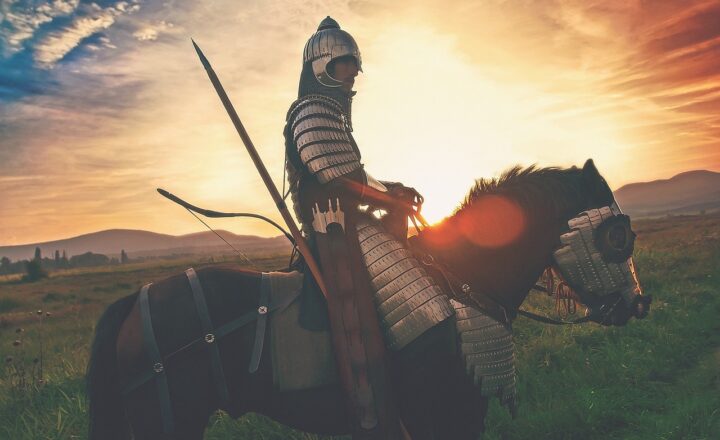Echoes of the Past: How Wars Shaped Modern Society and Culture
November 18, 2024

Wars have been a constant presence throughout human history, serving not only as conflicts of power and resources but also as catalysts for social, cultural, and technological changes. The impacts of wars extend far beyond the battlefield; their echoes resonate throughout time, influencing present societies and shaping cultures in specific ways.
1. Introduction: The Indelible Influence of War
War has been a deep-seated aspect of human civilization, marking periods of both regressive and progressive transformations. As a society navigates through times of conflict, the aftermath often leads to significant changes in political structures, cultural identities, and social hierarchies. This article delves into various wars and how they have indelibly marked modern society and culture.
2. Wars as Catalysts for Change: Historical Perspectives
Throughout history, wars have played a crucial role in societal transformation, triggering shifts in governance, ideology, and cultural perceptions.
2.1 World War I: A New World Order
The Great War (1914–1918) led to the end of empires, including the Austro-Hungarian, Ottoman, German, and Russian Empires. These upheavals reshaped nation-states and led to new political ideologies:
- Rise of Nationalism: The disintegration of empires fueled a sense of national identity, prompting countries to seek self-determination and independence.
- Birth of Modern Politics: The war saw an emergence of political movements advocating for social justice and rights, setting the ground for future revolutions.
- Changes in Gender Roles: With men off to fight, women filled roles in factories and offices, redefining gender roles and expectations in society.
2.2 World War II: Cultural and Technological Revolution
The Second World War (1939–1945) had a profound impact that not only reshaped political boundaries but also brought massive cultural and technological innovations:
- Cultural Symbols and Media: War propaganda and media representations created powerful cultural symbols that continue to influence art, literature, and film today.
- Technological Advancements: The urgency of war accelerated technological developments, such as radar, jet engines, and the atomic bomb, which would later shape civilian life and industries.
- Social Change: Post-war movements, including civil rights and decolonization, were driven by experiences of the war, as soldiers and citizens pushed for equality and justice.
3. The Societal Impact of War: Infrastructure, Economy, and Identity
Wars often lead to major shifts in infrastructure, economic practices, and social identity. Understanding these impacts provides insight into the evolution of modern societies.
3.1 Reconstruction and Resilience
Post-war reconstruction efforts have historically transformed national infrastructures and economies:
- Marshall Plan: After World War II, the U.S. initiated the Marshall Plan, leading to economic recovery in Europe, which not only rebuilt nations but also fostered transatlantic cooperation.
- Industrial Growth: Wars often result in industrial booms, as demonstrated during the industrialization spurred by wartime production needs, which later transitioned to consumer markets.
- Urbanization: War efforts necessitated urban growth, building cities and infrastructure that still serve as the backbone of modern economies.
3.2 Economic Shifts and Global Interdependence
Wars have challenged and changed traditional economic paradigms, leading to new patterns of global interaction:
- Rise of Global Markets: The aftermath of conflicts led to globalization, as countries merged interests and economies for mutual benefit and security in a fragile world.
- Shift to Welfare State: In many nations, particularly after WWII, governments expanded social welfare initiatives, marking a shift towards state responsibility for citizens, which influences current socioeconomic policies.
3.3 Identity and Memory
A war’s legacy often finds its expression in national identity and collective memory:
- Monuments and Commemorations: The establishment of memorials reflects society’s attempt to honor those lost and create narratives around the experiences of war, influencing how future generations relate to their history.
- Cultural Narratives: Literary works, films, and artistic representations shaped public consciousness and provided frameworks of understanding conflict, heroism, and sacrifice.
4. Fade and Transform: The Evolution of Cultural Elements Post-War
The conclusion of wars often results in significant cultural transformations that influence arts, literature, and even lifestyle choices.
4.1 Literature and Art as Reflection and Resistance
After war, literature and art frequently become reflections of societal trauma, perseverance, and change:
- War Literature: Novels, poetry, and memoirs examining the human experience of conflict create lasting reflections that continue to inform contemporary society’s understanding of sacrifice and loss.
- Art Movements: Movements such as Dada and Surrealism arose in response to the destructiveness of World War I, using art to challenge established norms and express chaos, a theme that recurs after periods of upheaval.
4.2 Influence on Popular Culture
The reverberations of war extend into popular culture, shaping fashion, music, and media:
- Fashion Trends: Military influences have periodically inspired fashion, with styles often emerging from the combat experience fostering a blend of utility and aesthetics.
- Music and Protest Movements: Music has long been an avenue for social commentary, with interpretations of war and peace shaping protest movements, notably during the Vietnam War era, which resonated deeply within popular culture globally.
5. Conclusion: The Ongoing Legacy of War
As we navigate a world still burdened with conflict, the echoes of past wars remain a formative feature of societal evolution. The changes instigated by these conflicts continue to influence our cultural identities, relationships, and understanding of governance. Recognizing the intertwining of war with culture and society allows us to better grapple with the complexities of human nature and the legacies we inherit—and those we further create in our ongoing narratives of conflict and peace. Understanding this historical context is crucial in our intellectual pursuit of a more peaceful future.
Through these explorations of how wars have shaped modern society, we gain a richer perspective on the narratives that define us as humans. The lessons of the past are instrumental in charting a better course ahead, ensuring that history’s echoes continue not just to resonate, but also to guide our consciousness toward understanding, tolerance, and peace.








